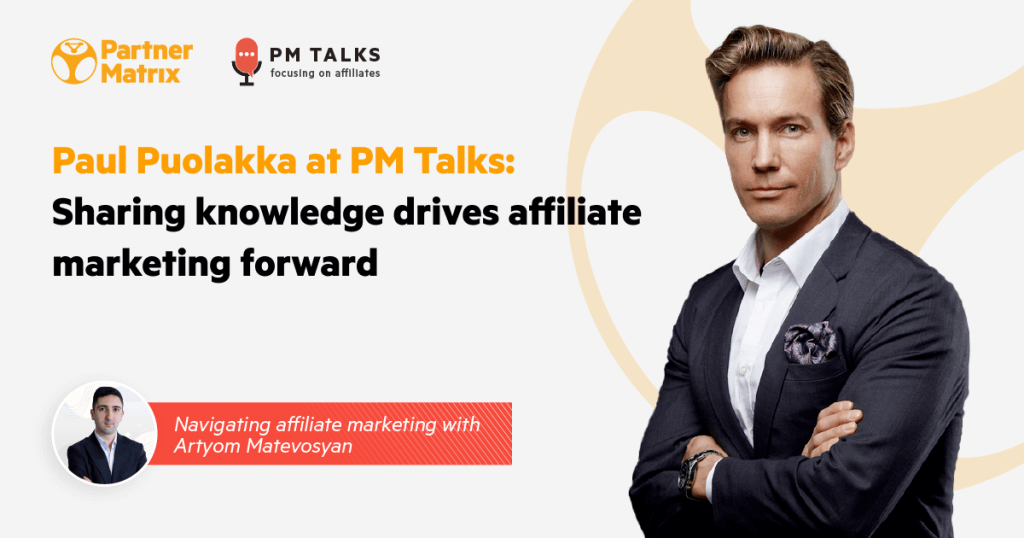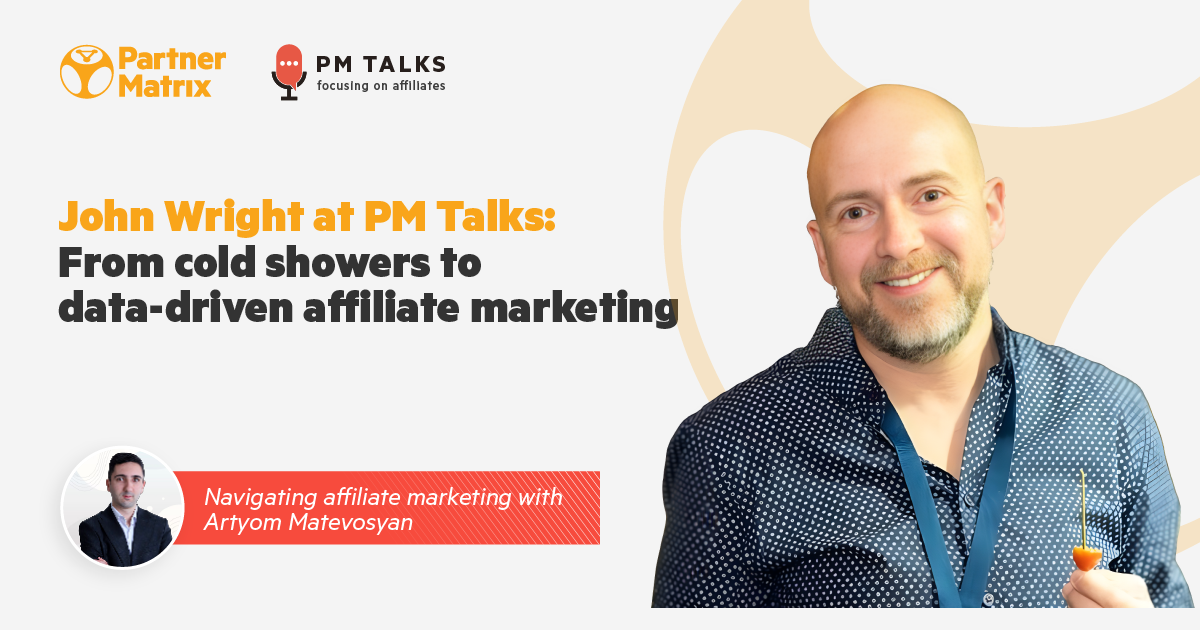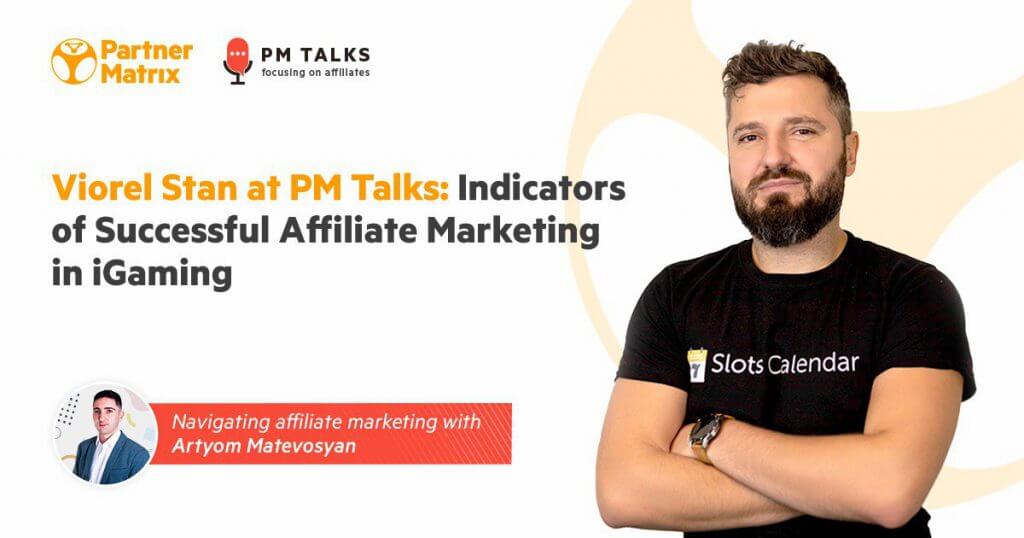
John Wright at PM Talks: From Cold Showers to Data-Driven Affiliate Marketing

John Wright is a seasoned entrepreneur passionate about data-driven solutions in the iGaming industry. As the co-founder of StatsDrone, he has played a pivotal role in revolutionizing how iGaming businesses harness the power of analytics. John’s remarkable journey in the online gambling sector began years ago when he recognized the untapped potential of data-driven decision-making.
In this conversation, John shared his journey and explored his company, current affiliate trends, and his personal work routine that ensures he always remains highly productive.
John, can you share with us how you came up with the idea to create StatsDrone and what were the incentives behind this project?
I used to use a stats app called Stats Remote right up until they went out of business. While using the app, I felt things could be better. I was running a B2B affiliate site called gaffg.com that did reviews of affiliate programs. I felt that this idea with a stats app went hand in hand because of situations that were causing revenue leak for affiliates.
These situations could be programs changing tracking software making old links invalid, programs going out of business, programs not paying affiliates, etc… I just knew this info needed to be in a stats app because I would spend my morning, afternoon and evening checking my stats daily and I know many affiliates do the same.
John, please briefly share about the company and your clients – who they are, and what solutions do they get from StatsDrone?
Our customers today are iGaming affiliates although we plan to branch into other affiliate marketing industries. Our app does 3 things for affiliates: gets their data, is a CRM and does Business Intelligence. The CRM helps them organize notes they have with programs and also track payments better. The StatsDrone app pulls all the KPIs from affiliate programs including campaign data. Then, it can export this data as CSV or API which can be further analyzed. Later this year we will be adding more BI features to do deeper analysis on this data and generate insights on the campaigns while also optimizing them for performance. More precisely, our analysis will show where to send more traffic and where to send less based on KPIs like earnings per click.
It’s interesting to know how long you’ve been in the iGaming industry. Where did you start and how did you end up in the affiliate niche?
I got started as a bonus hunter and also did some card counting and playing poker. My exposure to this naturally led me to know about other affiliate sites and how they made money. After my playing career, I managed 4 online casinos and was an affiliate manager. After that, I ran affiliate sites for over 10 years and during that time I also did affiliate coaching.
You have numerous publications on affiliate marketing, SEO, tools, and regions. Can you highlight the most demanded topics in the recent months?
This is a tough question. I would say there is a lot of content on affiliate marketing and SEO. I would say that some of the best knowledge you’ll gain is by networking with other smart affiliates and SEOs. They’ll often share things that are rarely written about.
I can say the same for one aspect of affiliate marketing, which is the lack of articles about Business Intelligence (BI). The BI space is a massive industry on its own, but not enough people talk about BI in affiliate marketing. These conversations happen at conferences but are rarely documented in articles or videos. I’m working to change that with the Affiliate BI podcast that I’ve recently launched.
The topic of fraud and scams is another never-ending story that goes alongside the industry development. What are the most common scams in the affiliate industry, and what solutions do we have?
I’d hate to highlight some of the best scams to give ideas to people, but they seem to be never-ending. Affiliates are getting scammed by people pretending to be operators, and unfortunately, many affiliate managers are scammed by people pretending to be affiliates. They’ll set up a Skype name and use a name associated with a large affiliate site asking for a flat fee deal that is too good to be true.
We don’t really have a college for affiliate marketing, and somehow, the industry needs to find a way to help affiliate managers and affiliates understand what fraud looks like and how we can work together to stop it.
In your opinion, what criteria are important for a successful launch of an affiliate program?
As someone who has close to 3000 affiliate accounts that we use for testing, I can say affiliate management is perhaps the top problem facing the affiliate marketing industry today. If I showed you our inbox of the types of outreach messages we get from affiliate managers, you would cringe.
This goes full circle back to education, or the lack thereof. Affiliate managers today seem to be bad at outreach and to compound the problem, they don’t know how to properly start a business discussion with an affiliate. Usually, this affiliate manager will ask for or expect the top spot without understanding that other parts of the site also drive business and, in some cases, can drive more business than the homepage. This is why affiliate managers need to be trained using tools like Ahrefs, Semrush, and DeepCI.
Can you share some insights about your work routine? Do you have strict rules or everyday rituals to keep you on track?
I’m always hacking my work routine but for me, it all starts with my day. Here’s a list of things I do that affect my work routine and how I focus on this. I do these things because I’m the CEO of a startup and I must wear a lot of hats and I need to make time for our team as well as affiliates who are our customers.
This is how I run my day and my work routine tips:
- Get up at 5 a.m. every weekday
- Cold shower
- Journal
- Coffee and breakfast at 6:30 a.m.
5 a.m. routine
I have a dev team in Europe, and a lot of the industry is based in Europe, so if I want to have more time with them, I need to make myself more available. I was never an early bird, so this took me some time to get used to. First, I had a 6:30 a.m. routine that gradually became 6 a.m., then 5:30 a.m. and then I said screw it, just get up at 5 a.m.
I also go to bed early to make sure I get a good sleep. I wear a Fitbit, so I know my sleep quality and understand what affects my sleep. That usually involves no drinking the night before.
Cold showers
I started doing that in January and have somehow managed to make it a daily habit. Now, cold showers are not really as painful or as shocking as they were when I first started taking them. I read that they can help you with mental focus, and it is one of the better ways of managing your dopamine in a day. I’ve been following this from Wim Hof and Andrew Huberman.
Journal
I wrote a lot of things in my journal. From daily notes to pieces of my mind. It is also my weekly task list, and I’ve also got my goals written on the main pages. I’ve been journaling since 2019, and it has been a very important part of myself, becoming a better person and being more focused at work.
Coffee at 6:30 a.m.
Notice I don’t have coffee at 5 a.m. to help me stay awake? I’m fully awake at 5 a.m. now, and I’ve also heard from one of Andrew Huberman’s podcasts that you should drink water when you wake up and try to have 90 minutes in between before having coffee. In the morning, people are more alert in this part of the day compared to the afternoon.
The rest of my days and weeks can be a bit of everything. I publish at least one podcast per week, we have weekly tech meetings, and I have many calls with affiliates to learn what we can do to help them better.
I’ll close this off by saying I’m on LinkedIn often during the day. I believe LinkedIn is our best social media channel for business, and it is something I’ve been working on for over a year and a half. I try to post about 3 to 5 times per week, and my agenda on LinkedIn is to build relationships, not sell people stuff. LinkedIn has been so important for my growth in the past year, and I attribute that not to the platform itself per se but rather to learning how it rewards people for their insightful comments and posts.
Articles you may like
See all

How much casinos and affiliates earn with affiliate marketing in 2023?
